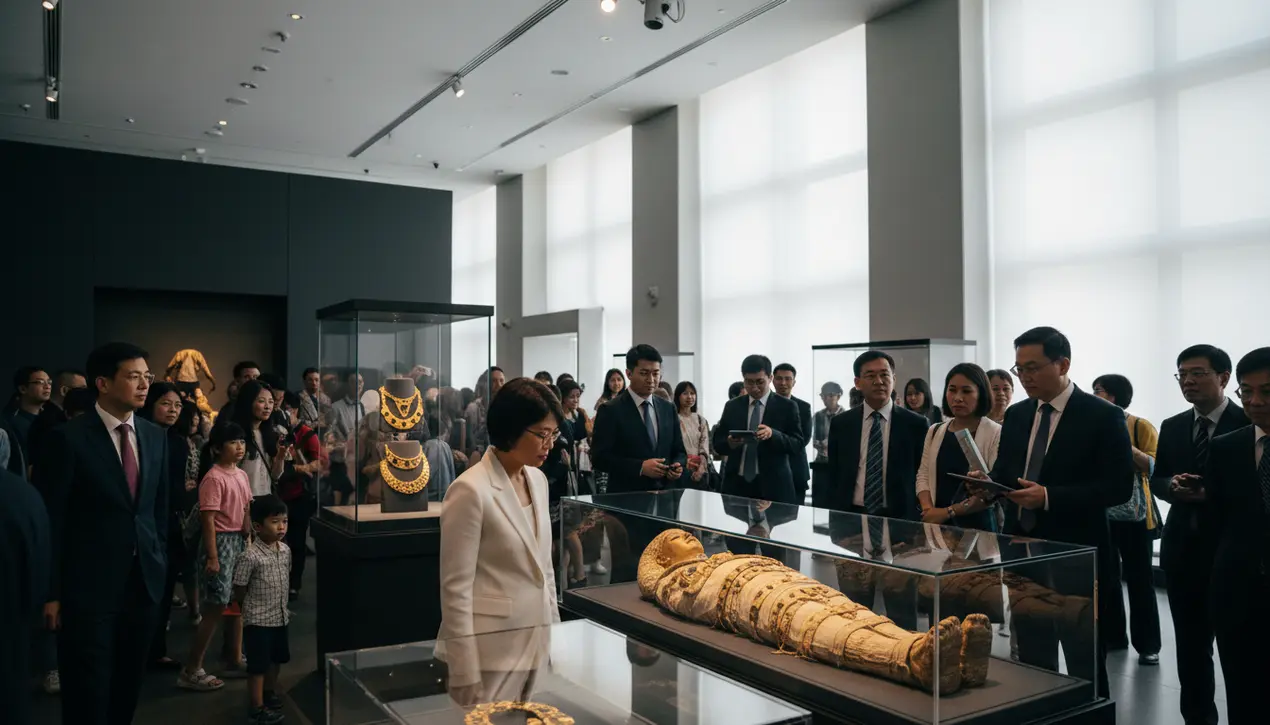
PoliticsdiplomacyCultural Diplomacy
Egypt Uses Artefact Exhibition in Hong Kong to Boost Trade and Investment
AN
Andrew Blake
1 hour ago7 min read
Hong Kong’s role as a crucial bridge in Sino-Egyptian relations is being tested in a fascinating new way, as top officials from the North African nation express sky-high hopes that a major cultural exhibition can directly boost trade and tourism with the city. Baher Sheweikhi, Egypt’s consul general for Hong Kong and Macau, voiced strong confidence that the nine-month exhibition at the Hong Kong Palace Museum, which launched recently and showcases a stunning collection of 250 historical artefacts—including mummies, statues, and intricate jewellery—could translate into tangible economic benefits.This isn't just about displaying ancient treasures; it's a sophisticated form of economic statecraft, a soft power play where history is leveraged as a diplomatic and commercial tool. To understand the stakes, you have to look at the broader context: Egypt is navigating a complex economic landscape, seeking foreign investment and looking East as it diversifies its global partnerships beyond traditional allies.Hong Kong, with its unique status as a Special Administrative Region of China and a global financial hub, presents a strategic gateway not just to mainland China's vast market but to international capital flows. The choice of artefacts is itself a calculated move—mummies and royal jewels aren't merely archaeological finds; they are symbols of Egypt’s immense cultural capital, designed to captivate the affluent, culturally curious audiences in Hong Kong and, by extension, attract business delegations and high-net-worth tourists.Historically, such cultural exchanges have often preceded deeper economic ties; think of the touring exhibitions of Tutankhamun’s treasures in the 1970s, which sparked a wave of Western fascination and investment in Egyptian tourism. Here, the potential consequences are multifaceted: success could mean increased bilateral trade in sectors like logistics, fintech, and sustainable infrastructure, areas where both regions have complementary strengths.However, the strategy is not without its risks. Hong Kong’s political environment remains sensitive, and any perception of the exhibition being too overtly commercial could dilute its cultural authenticity.Furthermore, the long-term effectiveness of such initiatives depends on sustained follow-up—trade missions, investor seminars, and tourism packages—that must seamlessly connect the initial cultural wonder to concrete business opportunities. From an analytical perspective, this move reflects a growing trend where nations use cultural assets as strategic economic levers, a practice that blurs the lines between museum curation and corporate diplomacy.It raises intriguing questions about the valuation of heritage in modern geopolitics and whether soft power can be reliably converted into hard currency. The outcome of this nine-month showcase will be a telling case study in whether ancient history can indeed forge a very modern economic future.
#featured
#Egypt
#Hong Kong
#cultural exchange
#trade
#investment
#tourism
#artefacts
Stay Informed. Act Smarter.
Get weekly highlights, major headlines, and expert insights — then put your knowledge to work in our live prediction markets.
Related News
Comments
Loading comments...
© 2025 Outpoll Service LTD. All rights reserved.